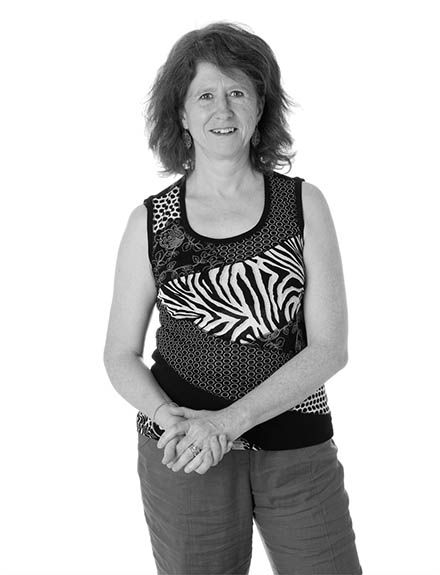| marie-hélène le ny |
|
photographist |

|
“We
are studying the geological storage of CO2 because it can contribute
to reducing greenhouse gas emissions in the atmosphere. The burning
of fossil fuels (coal, oil, gas) for our energy needs produces
CO2. The plan is to capture CO2 in industrial chimney stacks
(such as at power, steel and cement plants) and then return the
fossil carbon previously extracted back into the underground
in the form of CO2. The right geological rocks can efficiently
trap large quantities of CO2. We need the combination of i) a
geological reservoir composed of porous and permeable rocks into
which the CO2 is injected through a well and trapped between
the rock pores, and ii) an overlying impermeable cover (cap
rock) – such as clay – that prevents the CO2 from rising
upwards. The CO2 must be injected at a depth of at least 1 km
so that it takes on a highly dense form. At such depths, the
native water is extremely saline, unfit for human consumption,
meaning that there is no usage conflict with drinking water resources.
The BRGM (French Geological Survey) is a public research institution covering a wide range of activities reflecting the richness of the subsurface in terms of resources, in particularly energy resources. We conduct research projects on the development of geothermal energy and underground energy storage with the aim of increasing the share of renewables in the energy mix. BRGM is also active in the domain of groundwater resources, identifying the quantities available and solving problems relating to water quality, such as nitrate and pesticide pollution. Other priorities include natural risks associated with earthquakes, cliff slumping, collapse of underground cavities… searching for metals but also their recycling… perfecting treatment processes for contaminated sites and land. BRGM plays an important role in supporting public policy and is a privileged business partner (awarded the French Carnot label for its performance in partnership-based research with industrial sectors).” |
||
|
Isabelle Czernichowski-Lauriol, PhD in Geosciences, Chairwoman of CO2GeoNet association, BRGM |
|||
|
|
|
|